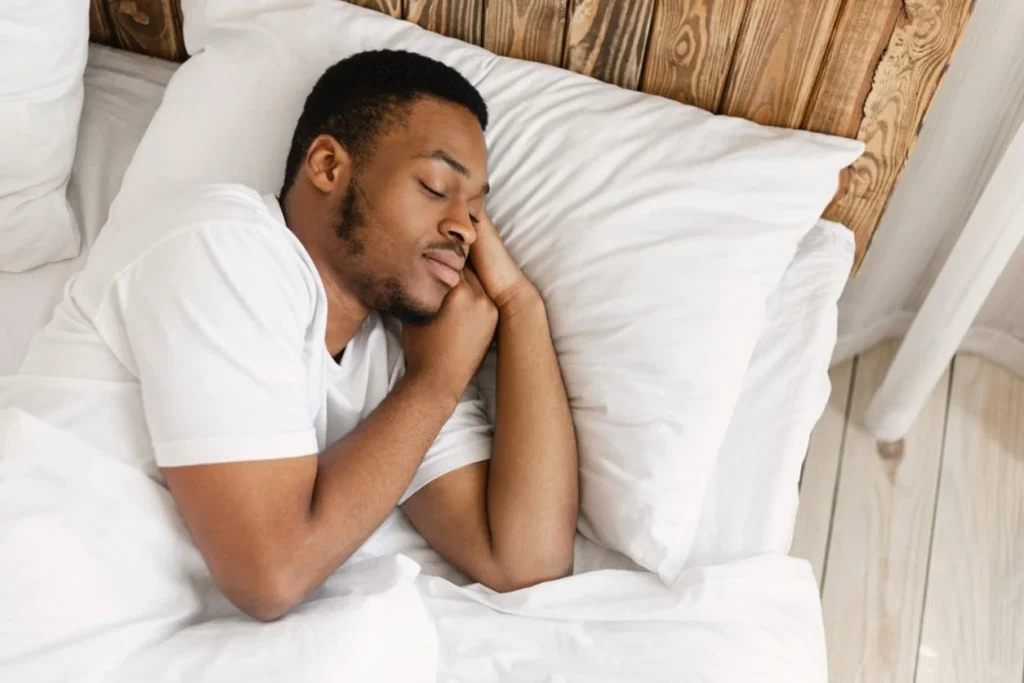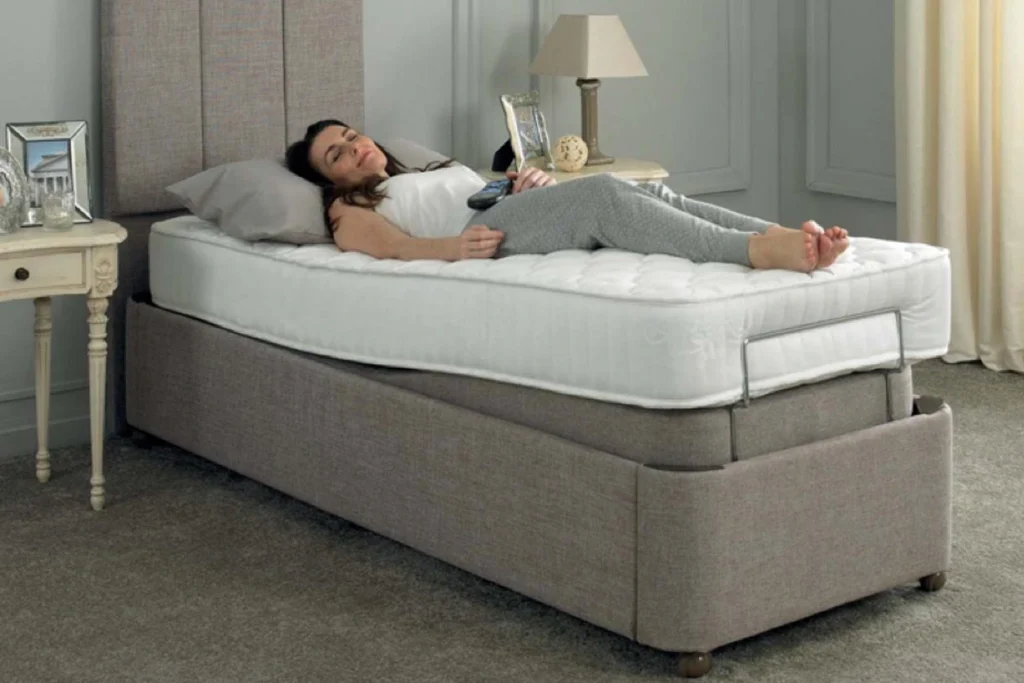How much deep sleep do we need?
Deep sleep is one of the key stages of sleep, and it’s possibly the most important. When in deep sleep your body starts to repair itself, and it’s necessary in order to feel refreshed and ready for the day when you wake up.
But how much do we actually need and at what point in the night does it happen? Learn this and more in the following guide.
What is the deep sleep stage?
During deep sleep your muscles will start to relax, along with slowing down of your heartbeat, breathing and brain waves. During this stage, it’s possible to sleep through loud noises (including snoring) and other disturbances.
How much deep sleep should you have a night?
For healthy adults, the amount of deep sleep should be around 13 to 23 percent of the overall sleep. For an 8 hour sleep, that’s roughly 1 to 2 hours of deep sleep. Although as you get older, the amount of deep sleep you need reduces.
Where does deep sleep fit into the sleep cycle?
Your body cycles through five phases of sleep during the night: three light sleep stages, one deep (non-REM) stage of sleep and one REM sleep stage. These five stages make up one sleep cycle. Each full cycle takes around 90 to 120 minutes, after which the next cycle starts. Adult sleepers go through 4 to 6 cycles each night on average, and each stage means different things for your sleep:
- Stage 1: this stage only lasts a few minutes, where you doze lightly as you fall asleep. Your breathing and heart rate start to slow, but you can be easily woken at this stage.
- Stage 2: in this stage, your heart rate drops and your breathing slows further. Your muscles relax and your body temperature also drops. You spend about half of the night in this stage of sleep.
- Stage 3: In stage 3 of sleep, your brain activity takes on a special pattern, with short bursts of activity while overall activity slows. Your muscles relax further, and your breathing slows.
- Stage 4: this is the deep sleep phase. Your heart rate and brain waves are at their lowest, and you are more difficult to wake.
- Stage 5: also called REM sleep, this stage gets its name from the eye movements common in this phase of sleep. This is the stage when dreams are thought to occur. Here, your brain activity increases, and is similar to when you are awake. You spend more time in REM sleep with each cycle.

What are the benefits of deep sleep?
A good sleep during the whole night is important for your health, but deep sleep is particularly important for your night’s rest. So why and how is it good to have deep sleep?
Physical repair
If you’ve wondered if it is good to have deep sleep on a regular basis, the answer is yes. In fact, it’s vital for growth and good health. During deep sleep, your body releases growth hormones, and builds and repairs muscles, bones and tissue.
Restores energy
Getting enough deep sleep restores your energy for the next day, and prevents that groggy tired feeling that can linger after a night of restless sleep.
Consolidates memories and learning
New memories and information are sorted during deep sleep into relevant memories to store and others to be discarded. Deep sleep is also important for brain development.
Why do you need deep sleep?
Getting enough, good quality deep sleep is essential for good health. If you have disturbed deep sleep, or not enough, you will likely feel groggy and unrefreshed in the morning and tired throughout the day. So what happens when you don’t get enough deep sleep?
Memory problems
During deep sleep, your brain processes new information to form memories. Without enough deep sleep, you may struggle to integrate new memories, learn or remember new information.
Hormonal changes and appetite increase
You may have noticed that you tend to be hungrier after a bad night’s sleep. Insufficient sleep can result in changes in the hormones that regulate our appetite, particularly for high-calorie food. Missing out on deep sleep can contribute to heart disease and type 2 diabetes.
Lower immune response
Your immune system can be less effective after insufficient deep sleep, leaving you more vulnerable to infection.
How will buying an adjustable bed help me achieve a deeper sleep?
Getting enough deep sleep is important, but if it’s not of sufficient quality, even a full 8 hours can leave you struggling and often feel tired in the day.
So, how can you improve the quality of your sleep?
Sleep in the best position for you
On a flat, non-adjustable bed, the best sleeping position for most people is on your side. However, this can put a lot of pressure on your shoulders, hips and head. An adjustable bed can improve your quality of sleep by helping you to lie in a pain-free, comfortable position.
The beds contour to the shape of your spine, so you can sleep in a weightless zero-gravity position, with your spine fully supported and pressure points, such as at your shoulders, minimised.
An adjustable bed also gives you the option of sleeping on your back. While on a normal bed this can put pressure on your lower back, the contoured shape possible on an adjustable bed relieves this stress and lets you sleep in a healthy posture.
Get a big enough bed for you and your partner
Did you know that two adults sharing a double bed have less space per person than one person in a single bed? Although sleeping in the same bed is a foundation of closeness and intimacy in many relationships, it can also mean compromising on your sleep. Your partner’s movements and body heat can disturb your sleep and disrupt your progression through each sleep cycle, resulting in unrefreshing sleep.
Sleeping on the right bed base and adjustable bed mattress for your sleep style that’s big enough to get comfortable is a great start. So if you have the space and budget, opt for the largest available size such as a king size bed.
Tackle snoring
You may have wondered if snoring means deep sleep is occuring, well your partner might be, but you certainly won’t if you’re being kept up all night. Just like other disturbances, snoring can disrupt your sleep cycle and prevent you getting enough sleep. An adjustable bed can help by allowing you to sleep with your head elevated, which can help tackle snoring and sleep apnoea.
Get into the habit of a regular sleep routine
Struggling to fall and stay asleep is something many of us experience as we get older, particularly if pain is also an issue. But putting off sleep and going to bed later can mean that you don’t get the normal 4-6 full sleep cycles each night, even if you sleep in late. Massage therapy, built into Adjustamatic beds, can help tackle pain and let you fall to sleep with ease.
Take a holistic approach to poor sleep
Going to bed on time and at the same time every night, going outside into sunlight in the morning and making sure you have a good sleep environment are all excellent ways to regulate your sleep-wake cycle and get enough deep sleep.
It’s also important to see your GP if you often wake up feeling unrefreshed. Many sleep problems can be treated. If there’s no medical cause identified, or you’ve been diagnosed with a condition that could be disrupting your sleep (such as chronic pain) then it’s a good idea to think about how you can improve your sleep at home alongside any treatment plan. Purchasing an adjustable bed makes getting enough good quality sleep easy.

Buy the right adjustable bed for you
We offer a range of luxurious and practical adjustable beds to suit your needs. Discover our huge range of mobility bed sizes, features and style options with our bed buying guide
If you are ready to buy an adjustable bed but need more information, please don’t hesitate to give us a call on 0800 689 9823 (9am-5pm Mon-Fri), or drop us a message. Our professional team can help you organise a home visit for you to trial any bed, as well as give you friendly and reliable advice. Let’s help you get a good nights sleep!


